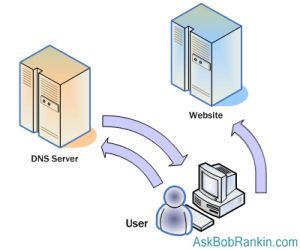Google made some big news in the world of DNS recently. The company announced on their blog that they currently respond to over 70B DNS requests per day, making Google the largest provider of public DNS services. (DNS translates domain names to IP addresses, and returns the correct online destination to users).
Back in 2009 I wrote about the launch of Google Public DNS, and wondered what effect it would have on the market. One result is that consumers now have a well known technology company offering them a better DNS experience than they get from their ISPs, which historically have never had any reason to invest in better DNS performance. Google claims it does not store personally identifiable information from DNS traffic, and does not combine it with any other Google service.
Other industry players will need to respond to the growth of Google Public DNS. OpenDNS is a startup company that in many ways pioneered free recursive DNS service in 2005. (Quick DNS primer — recursive DNS returns answers to users, authoritative DNS provides those answers to be returned).
Forbes just published a Q&A in which OpenDNS founder David Ulevitch attempts to spread some fear, uncertainty and doubt (FUD) about Google becoming too central in how users connect online. Over the years I’ve been impressed with how quickly Ulevitch responds to any market development that could affect OpenDNS. In particular, he started using social media channels to support his corporate messaging well in advance of other companies in the space.
This well-timed media interview is another example. With coverage of Google overriding privacy settings in Safari browsers fresh in the news, it’s smart messaging to raise doubts about the company becoming dominant for DNS.
At CircleID, there’s a fascinating discussion on how Google’s growth affects VeriSign, operator of the dominant .com and .net domains. VeriSign operates .com and .net under an exclusive contract with ICANN, the administrator of certain Internet infrastructure functions. The piece is written by George Kirikos, a long-time critic of ICANN who uses the 70B requests a day number to criticize VeriSign’s exclusive contract.
George points out that one metric VeriSign has used for years to justify its ability to effectively support .com and .net is DNS requests handled. Based on the latest public statement, that number is currently a daily average of 59B, less than Google’s 70B. As the comment thread of the piece makes clear (worth the time to review), the comparison isn’t really apples to apples since Google is recursive and VeriSign is authoritative. Even more critically, VeriSign has a much heavier burden to provide a stronger level of service than does Google.
Most people don’t understand how DNS works, never mind understand the difference between VeriSign’s number and Google. Having divested itself of its telecom business (to TNS in 2007) and security (Symantec in 2010), all of VeriSign’s eggs are in the DNS/.com/.net basket. (The company also has a small managed security business called iDefense). Rather than trying to explain the differences and draw further attention to Google’s growth, I’d expect VeriSign to drop the DNS request number from its external messaging.
As I wrote back in 2009, Google was sure to create big waves by entering the DNS space. It sure makes the space more interesting. And as Ulevitch of OpenDNS admitted in his interview, the growth of Google Public DNS raises the awareness of the importance of DNS. That’s a very good thing in and of itself.
